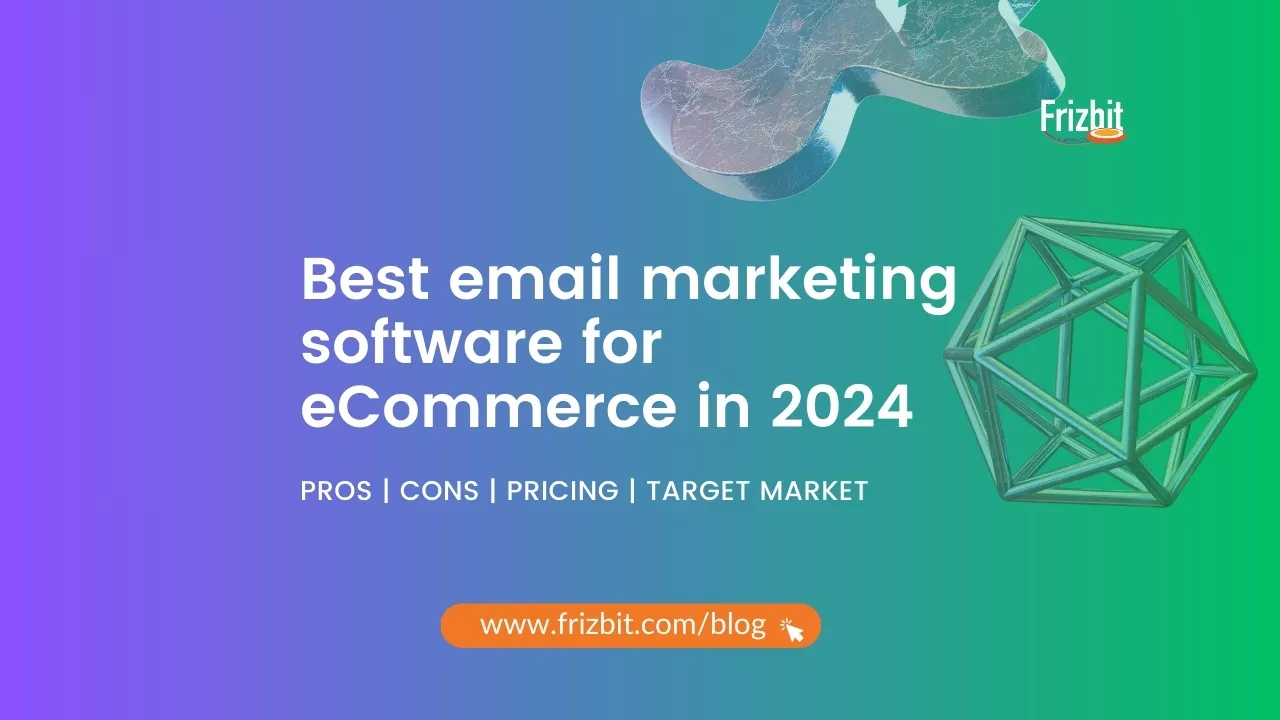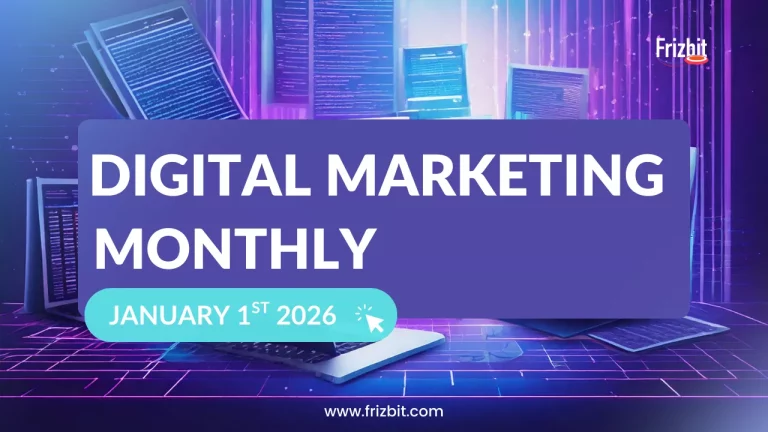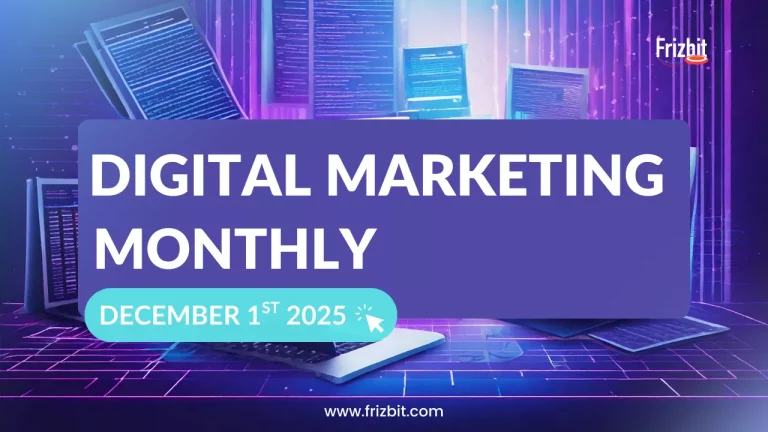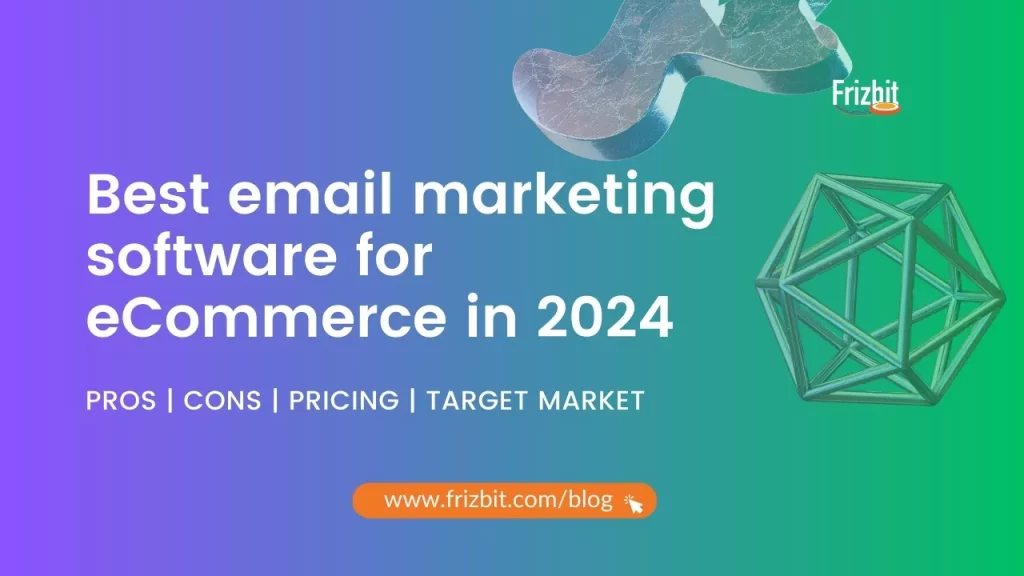
Did you know, email marketing software continues to thrive as one of the most effective tools for eCommerce businesses to engage with their customers in 2024?
If you have an ecommerce business, you know that one of the biggest problem is the high amount of abandoned carts, even studies have shown that almost 70% of consumers abandon their carts without buying anything.
Introducing an e-mail marketing service can help you recover up to 8% of abandoned carts and increase total sales by over 4%, leading to a remarkable ROI of 20% and an Open-Rate of 20%.
It is clear! Email marketing solutions, when combined with the right email marketing practices, must be part of your marketing strategies. But choosing the right email marketing software for your eCommerce business can be challenging.
Keep reading to discover important insights, tips, and a list of the best email marketing software platforms for e-commerce in 2024 to help you find the perfect match for your business.
Why is Email Marketing Software so Important?
Whether you’re focused on B2B email marketing or B2C email marketing, investing in the best email marketing automation software is essential. These tools allow you to automate repetitive tasks, segment your audience, and send targeted messages based on user behavior. This not only saves time but also increases the effectiveness of your campaigns, leading to higher conversion rates.
Implementing email marketing software offers the following key benefits for your e-commerce:
- Cost-Effectiveness: Reach a large, targeted audience without the high costs associated with traditional marketing.
- Nurturing Customer Relationships: Regular updates and promotions help build and maintain customer loyalty.
- Targeted Messaging: Personalized content increases engagement and conversion rates. For example, using a marketing automation platform allows you to streamline your email campaigns and focus on creating engaging content.
- Measurable Results and Analytics: Detailed metrics provide insights to optimize campaigns.
- Automation and Efficiency: Automated workflows ensure timely communication and save time, especially when using e-mail marketing automation to manage large-scale campaigns.
- Lead Generation and new business opportunities: Effectively acquire and nurture new leads, expanding the customer base.
- High ROI: Email marketing is renowned for its impressive return on investment (ROI) making it a crucial component of any eCommerce strategy.
Now that we’ve established the importance of implementing email marketing software, let’s explore how we can help you find the best email marketing software platform for your eCommerce
Email Marketing Apps: Choosing the Right Tool for Your E-commerce Business
In today’s competitive e-commerce landscape, selecting the right email marketing apps is crucial for engaging with customers and driving sales. These apps offer various features that cater to different business needs, from small startups to large enterprises. Whether you’re looking for simple newsletters or complex automation, there’s a tool designed to meet your requirements.
Tips for Choosing the Best Email Marketing Software for eCommerce
Before diving into the list of platforms, consider the following steps to find the best email marketing software for your business:
- Identify Your Needs: List your specific requirements and goals.
- Budget: Determine your budget and compare pricing structures.
- Ease of Use: Make sure it does not include complex coding and is user-friendly.
- Scalability: Ensure the software can handle multiple client accounts and large contact lists, especially if you’re looking for the best email marketing software for large businesses.
- A/B Testing: Check if the platform supports split testing for better decision-making.
- Website Tracking: Measure campaign effectiveness with detailed analytics.
- Deliverability rates: Monitor how well your emails reach recipients’ inboxes.
- Lead Scoring: Focus on high-potential leads.
- Automation Features: Advanced automation for triggered emails
- Customer Support: Choose a platform that offers robust support options, including live chat, phone support, and comprehensive documentation
Comparison Table: The Best Email Marketing Software Platforms
When choosing an e-mail marketing service, it’s important to consider factors such as ease of use, integration with other platforms, and customer support. The ideal service should provide comprehensive tools for creating, sending, and analysing emails, all while ensuring that your messages reach the inbox and not the spam folder.
Here you can find a summary of the best email marketing software platforms for 2024:
| Platform | Benefits | Pricing | Target Market |
| Frizbit | Hyper-Personalization, unlimited automation, user-friendly interface, dynamic fields, cross-platform compatibility, A/B/X testing, Design and Preview emails | $99 for every 10.000 emails sent | All-size eCommerce |
| Drip | Ecommerce-specific triggers, on-site campaigns, all features included in all plans | $699/month for up to 50.000 contacts | All-size eCommerce |
| Klaviyo | A/B testing, user-friendly interface, drag-and-drop editor, industry benchmark data, built-in CDP | $45 for 15.000 emails/month | All-size eCommerce |
| ActiveCampaign | Pre-built automation templates, contact management, extensive features suite | $49/month for 1.000 marketing contacts | Small to mid-sized |
| Brevo (Sendinblue) | Conditional content blocks, eCommerce dashboard, multi-channel campaigns | €255 for 100.000 emails | Small to medium-sized |
| Omnisend | Ecommerce-focused, free plan with advanced features, segmentation, multi-channel messaging | Standard ($16/month) | All-size eCommerce |
| Campaigner | Feature-rich, eCommerce integration, 24/7 customer support | Starter ($59/month) | Small to medium-sized |
| GetResponse | Basic features’ suite, eCommerce integration, webinars, AI tools, segmentation, RSS feed | $13.1/month tailored plan | Small to medium-sized |
| MailerLite | Free plan, paid subscriptions option, segmentation, flexible billing, customer support | Free: 12.000 emails/month for 1.000 users | Small to medium-sized |
This table highlights the key aspects of each platform, helping you make an informed decision based on your specific needs and budget.
The Best Email Marketing Software Platforms for eCommerce
1.Frizbit
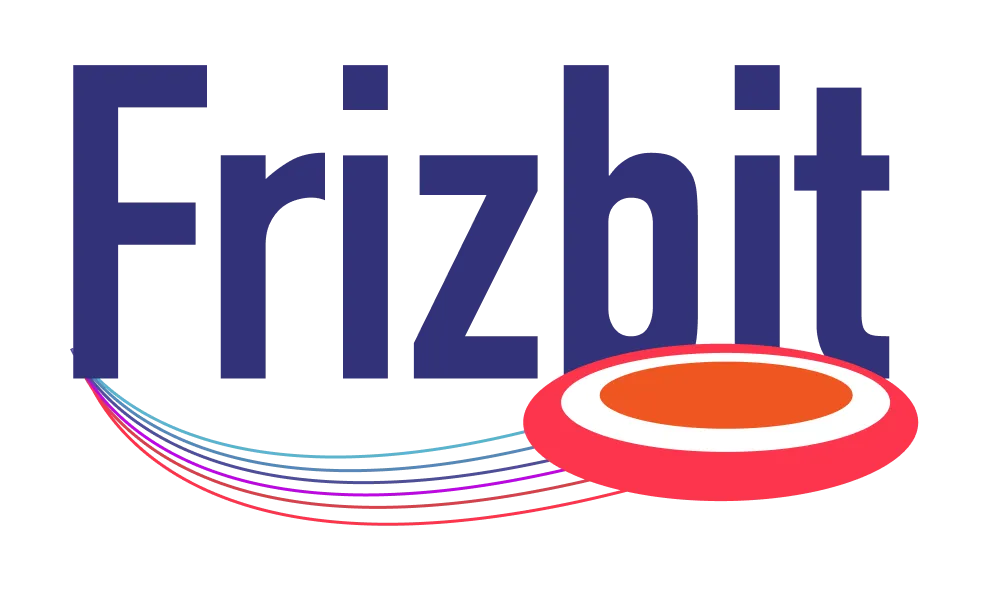
Frizbit is a cross-channel marketing automation platform helping e-commerce businesses to bring their customers back at every stage of the funnel by sending automated hyper-personalized messages based on user behavior in web push notifications, email marketing, and SMS channels.
Pros
- Hyper-Personalization and Bulk Sending: Offers advanced personalization to create individual user experiences and the ability to send large volumes of messages.
- Unlimited Automation Capabilities: Supports a wide range of automated campaigns, including retargeting, upselling, and abandoned cart recovery which enables lost sales recovery.
- User-Friendly Interface: Designed to be intuitive for marketing professionals.
- Behavioural Triggers: Sends notifications based on user actions to retarget potential clients effectively.
- Dynamic Fields: Allows for personalized and dynamic content in messages to increase customer engagement.
- Audience Segmentation: Enables detailed targeting without needing a development team to create relevant campaigns for interested audiences.
- Full-Funnel Campaign Journeys: Incorporates complete marketing journeys from initial engagement to conversion.
- Frequency Caps: Prevents over-messaging to avoid audience fatigue.
- A/B/X Testing: Facilitates testing multiple variations of messages to refine strategies.
- Design and Preview emails: Works seamlessly in your email templates to improve the message visually.
Cons
- Collaborative Onboarding Process: While Frizbit offers a user-friendly interface that marketers will appreciate, new clients will need support of the Frizbit team to seamlessly integrate the platform into their eCommerce operations.
- Email editor, while it is intuitive, has basic design functionalities
Pricing
Frizbit offers a price of $99 for every 100.000 emails sent, ensuring a potential return on investment (ROI) of up to 20x in email marketing.
This price consistency allows businesses to plan their marketing budgets more effectively.
Contact the sales team for more information about prices!
Target Market
Frizbit is strategically engineered to empower eCommerce businesses, making it an ideal choice for digital marketing professionals.
This user-friendly platform integrates seamlessly with Google Tag Manager, eliminating the need for complex coding and simplifying the user interface.
2.Drip
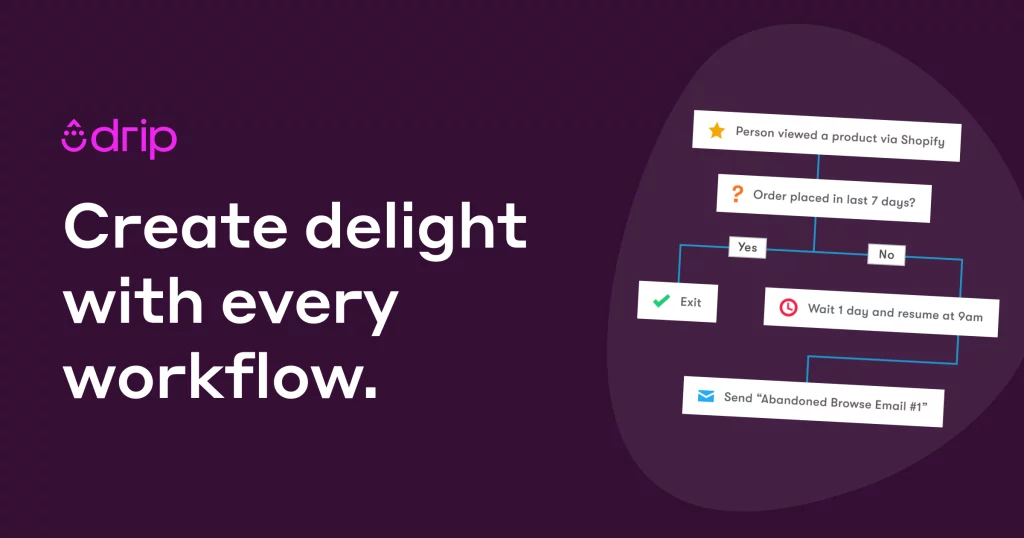
Drip is a marketing automation platform for eCommerce businesses. It aims to help online retailers engage with their customers through personalized, data-driven marketing strategies.
Drip provides a suite of tools through automation, segmentation, and CRM capabilities.
Pros
- Ecommerce-Specific Triggers and Actions: Drip offers a range of workflow triggers and actions, categorized by platform.
- On-site Campaigns: Includes daily offers, surveys, gamification, and more.
- All Features Included in All Plans: Drip does not lock any features behind more expensive plans.
Cons
- Only offers Email Marketing: Drip doesn’t offer SMS marketing, web push notifications, social ads, CRM, or CDPs.
- Interface Navigation: Navigating through Drip’s various features can be challenging compared to other email platforms.
- Deliverability Issues: Drip’s email deliverability is below average
- Pricing: It is pricier than other email platforms
Pricing
Drip’s pricing is structured based on the number of contacts in your email list.
To start, they offer a 14 days free plan. Then, for up to 2,500 contacts, the cost is $39 per month. As your list grows, the pricing adjusts accordingly: $89 per month for up to 5,000 contacts and $699 per month for up to 50,000 contacts
Target Market
Drip is ideal for eCommerce businesses and online retailers looking for dynamic strategies including offers, surveys, and games.
3.Klaviyo
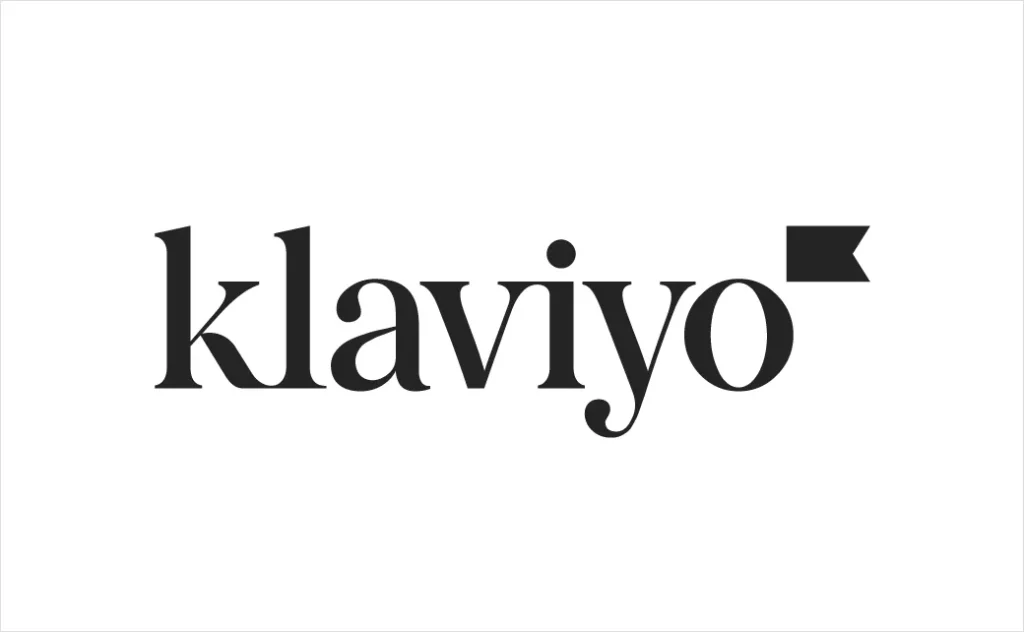
Klaviyo is a marketing automation platform for email marketing, SMS & CDP and integrates with eCommerce platforms like Shopify, Magento, and WooCommerce.
Pros
- A/B Testing: With Klaviyo, you can A/B test your email subject lines, copy, and email forms.
- User-Friendly Interface: Klaviyo is a user-friendly, making it easier to create email marketing campaigns.
- Drag-and-drop editor: Add dynamic product recommendations in your emails.
- Industry Benchmark Data: Provides industry email benchmark data to help measure your campaign performance against peers.
- Built-in CDP: combine customer data from various sources.
Cons
- Basic Email Automations: Klaviyo’s email automations, “flows” are somewhat basic, with limited automation actions and only one trigger per flow.
- Higher Pricing: Klaviyo’s pricing is on the higher end compared to some other email marketing platforms, which might be a consideration for smaller businesses or startups.
Pricing
Their pricing model is based on active profiles.
>To start they offer a price of $45 for 15.000 monthly email based on an example of 1.001 – 1.500 active profiles
Target Market
Klaviyo is best suited for eCommerce. This can be an interesting option for you if you are interested to integrate tools such us Klaviyo’s CDP and SMS features to your email or SMS marketing channels.
4.ActiveCampaign
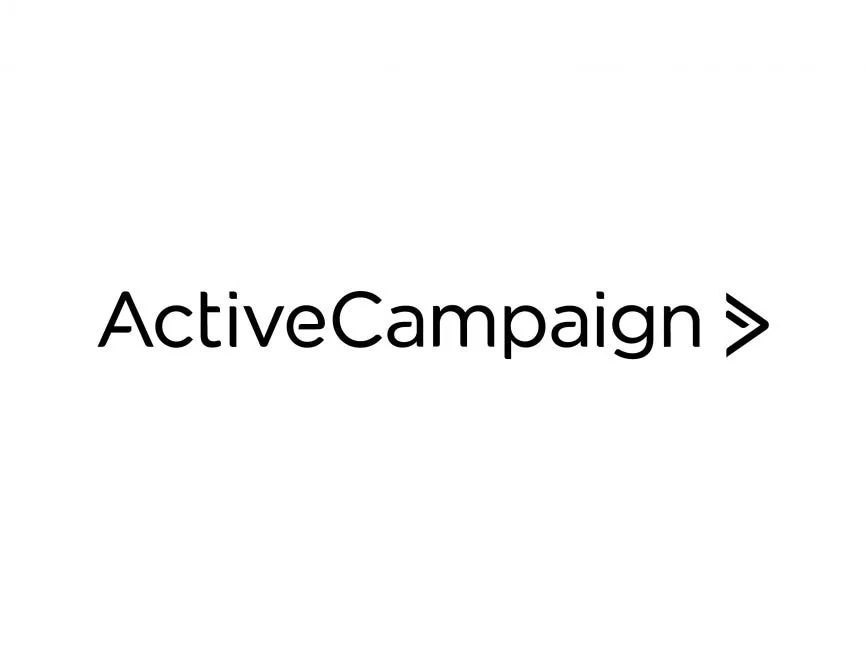
ActiveCampaign is a marketing automation platform that combines email marketing, automation, sales CRM, and machine learning to help businesses from small-to-mid-sized businesses.
It is designed to streamline customer communication, automate marketing processes, and drive sales through personalized, data-driven campaigns.
Pros
- Automations: They offer pre-build automation platform templates called “recipes”.
- Contact Management: Offers segmentation and targeting of contact lists, for campaigns relevance.
- Features Suite: Includes marketing tools such as email marketing, CRM, SMS marketing, and more, all in one platform.
Cons
- Cost of Transactional Emails: Sending transactional emails such as order confirmations and password resets requires an additional fee.
- Learning Curve: The extensive feature set and advanced capabilities may present a learning curve for new users.
- Higher Pricing for Advanced Features: Cost can be higher compared to simpler platforms, especially when utilizing advanced features.
Pricing
It offers three plans: Plus, Professional, and Enterprise
>You can start paying $49 per month and send 1.000 marketing contacts for the Plus Plan.
Target Market
For eCommerce businesses that are looking to prioritize automation in their digital marketing campaigns.
5.Brevo
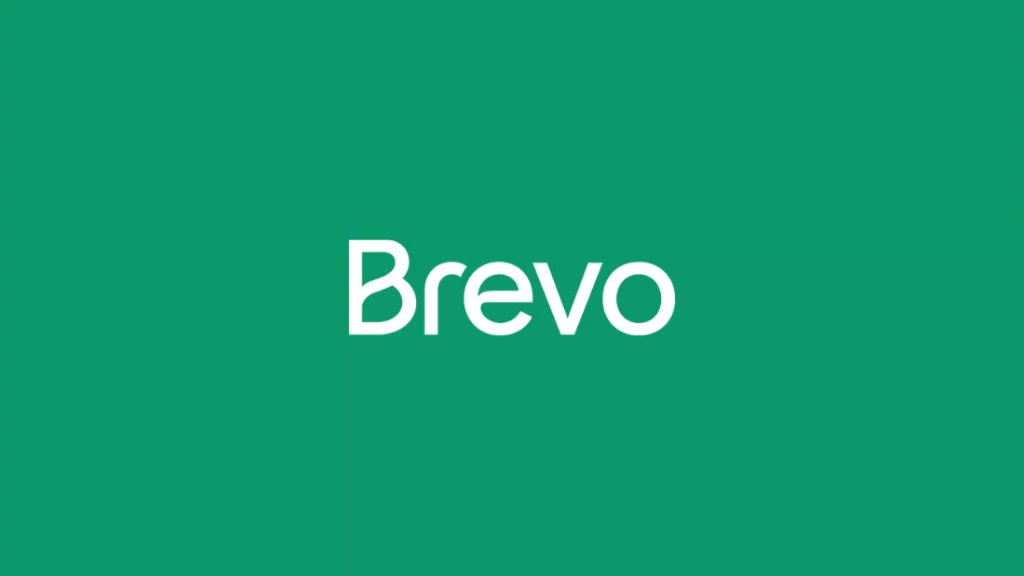
Brevo, formerly known as Sendinblue is an all-in-one platform that offers email marketing and marketing automation channels designed to help businesses of all sizes manage their digital marketing efforts.
Pros
- Conditional Content Blocks: Personalized emails
- Ecommerce Dashboard: Provides an overview of orders, revenue figures, and best-selling products, along with real-time tracking of cart additions and checkouts.
- Transactional Emails and Multi-Channel Campaigns: Features like transactional emails, WhatsApp campaigns, and SMS marketing are available even on the free plan.
Cons
- Limited Product Variant Information: While it can display store products in emails, it lacks detailed information on product variants.
- Basic Segmentation Options: The contact segmentation options are not as comprehensive as those offered by other platforms.
Pricing
It offers three plans Free, Started and Business
>For 30 euros you can send 5000 emails and for 255 euros for 100.000 emails.
Target Market
Brevo is best suited for small to medium-sized businesses, particularly those in the eCommerce sector
6.Omnisend

Omnisend is an email marketing solution for eCommerce businesses. It enables brands to streamline their marketing efforts by integrating various communication channels such as email, SMS, push notifications, and more.
Pros
- Ecommerce-Focused Features: offers features such as discount coupon codes and product listings, eliminating the need for additional integrations.
- Free Plan: The free plan includes access to almost all features, including advanced options like automation splits, personalized recommendations, and conditional content blocks.
- Segmentation: creates cater groups of different audiences
- Multi-Channel Messaging: Besides email, Omnisend supports SMS and web push notifications, providing a comprehensive solution for reaching customers across different channels.
Cons
- Deliverability: Based on regular tests, Omnisend’s email deliverability could be improved.
- Delayed Advanced Reports: Advanced reports are not updated in real-time; detailed campaign reports are refreshed only once a day, which might not provide an up-to-the-minute view of email performance.
Pricing
Omnisen offer three plans: Free, Standard and Pro
>The free plan has a limit of 250 contacts and 500 emails/month
>The Standard has a limit of 500 contacts and 6000 emails/month for $16/month
>The Pro plan has a limit of 2500 contacts and unlimited emails for $59/month
Target Market
Online stores that require a comprehensive email marketing tool specifically designed for eCommerce.
7.Campaigner

Campaigner is an email and marketing automation platform that enables users to create, send, and manage email campaigns with ease. It primarily serves small to medium-sized businesses looking to engage their customer base through targeted email strategies.
Pros
- Features Suite: Offers automation workflows, A/B split testing, dynamic segmentation, and personalized email campaigns.
- eCommerce Integration: Integrates with platforms like Shopify and Magento, making it ideal for online stores.
- Customer Support: Provides 24/7 support via phone, email, and live chat.
Cons
- No Free Plan: Does not offer a free plan, although a 30-day free trial is available.
- User Interface: Some users find the interface less intuitive, particularly the email editor and workflow automation builder.
- Template Navigation: Despite offering over 900 templates, navigating and customizing these templates can be challenging.
Pricing
Offers four plans: Starter ($59/month), Essential ($179/month), Advanced ($649/month), and eCommerce ($79.95/month)
Target Market
It is well-suited for small to medium-sized businesses, especially those with email marketing needs and those requiring automation and eCommerce integrations.
8.GetResponse

GetResponse is an email marketing platform that enables businesses to send emails, create automation workflows, and design landing pages and forms.
Pros
- Features Suite: automation, segmentation, autoresponders, landing pages, and conversion funnels.
- eCommerce Integration: The platform supports integrations with eCommerce platforms such as Shopify, Magento, Prestashop, BigCommerce.
- Webinars: Allows businesses to engage their audience through live or pre-recorded webinars.
- AI Tools: GetResponse includes AI-powered tools, such as the AI Email Generator, AI Landing Page Generator, and workflows.
- Segmentation: Based on various criteria like subscriber behavior, demographics, and purchase history.
- RSS Feed: You can use this feature to quickly connect your website blog to GetResponse, and then send out automated newsletters
Cons
- Limited Flexibility in Website & Landing Page Builder: Lack of flexibility and advanced features of dedicated landing page builders like Leadpages, Landingi, or Unbounce, and WordPress.
- High Costs for Large Lists: While GetResponse is affordable for users with small lists, it becomes expensive as the contact list grows.
- Advanced Features Locked in Higher-Tier Plans: Many of GetResponse’s best features are only available in higher-priced plans.
Pricing
They offer a tailored plan only for email marketing that costs $13.1/month
Target Market
GetResponse’s target market primarily includes small to medium-sized businesses, enterprises, and eCommerce companies looking to optimize their marketing strategies.
9.Mailerlite
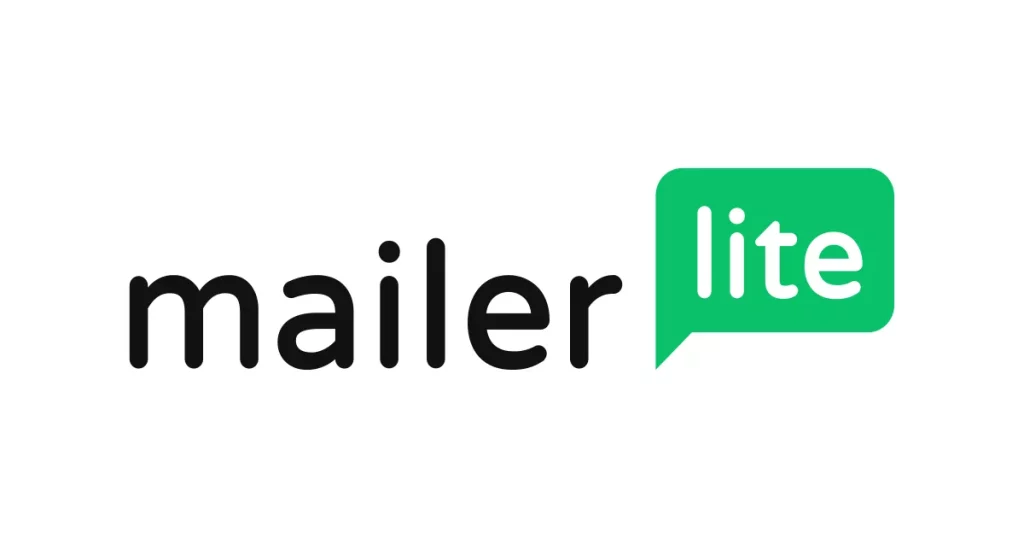
MailerLite is an email marketing tool and website builder for businesses of all shapes and sizes. The key idea behind MailerLite is simplicity. They provide their customers user-friendly tools such as a Drag & drop email editor, website builder, and an intuitive subscriber management interface.
Pros
- Free Plan: Supports up to 1,000 subscribers and 12,000 emails per month at no cost.
- Paid Subscriptions: Allows the option to sell paid subscriptions directly through the platform.
- Segmentation: Integrates with Facebook for segmentation and targeting.
- Flexible Billing: Offers both annual and monthly billing options.
- Customer Support: Responsive customer support.
Cons
- Learning Curve: The platform can be less intuitive for new users
- Authentication Process: The new account authentication process can be complicated
- Advanced Features in Higher Plans: Some of MailerLite’s best features are only available in higher-tier plans.
Pricing
Offers four plans: Free, Growth, Advanced, and Enterprise.
>For the free plan it has a limit of 12000 emails/month for up to 1000 subscribers.
Target Market
Ideal for small to medium-sized businesses, bloggers, and eCommerce stores that need an easy-to-use, affordable email marketing solution with powerful automation capabilities.
Conclusion
Choosing the right email marketing software can significantly impact your eCommerce success. By considering your specific needs, budget, and desired features, you can find the perfect platform to enhance your email marketing efforts. Each of these top platforms offers unique advantages, so weigh the pros and cons to determine which one best aligns with your goals.
FAQ Email Marketing Platforms
1. Why use an email marketing software?
Using email marketing software allows you to automate campaigns, segment your audience, and track performance, making your marketing efforts more efficient and effective.
2. Can I use email marketing software for free?
Yes, many platforms offer free plans with basic features, suitable for small businesses or those just starting. However, advanced features typically require a paid subscription.
3. What are the key features of the best email marketing software?
As highlighted in our email marketing guide, look for features like automation, segmentation, A/B testing, and integration with other marketing tools. These features help you create effective campaigns that resonate with your audience.
4. How does email marketing software improve customer engagement?
Email marketing software enables you to send personalized and timely communication, which increases customer engagement and leads to higher conversion rates.
